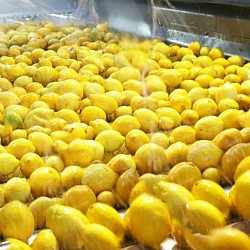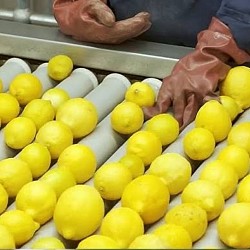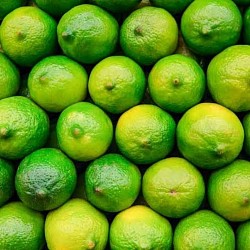Exporting Lemons and Limes from South Africa
What Makes South African Lemons Stand Out
South African lemons stand out primarily due to their exceptional quality, consistent supply, and robust export infrastructure. Benefiting from diverse climatic conditions across key growing regions, South African producers cultivate highly sought-after varieties like Eureka, which are known for their smooth yellow skin, high juice content, and strong acidity. The industry's stringent adherence to international phytosanitary standards, including rigorous quality and food safety protocols, ensures that the fruit meets the demanding requirements of global markets, particularly in the EU and UK. Furthermore, South Africa's counter-seasonal supply to the Northern Hemisphere allows them to fill market gaps, making their lemons a reliable and high-quality option for international buyers.
How We Pack and Label
For lemon exports to the UK and EU, Africa Harvest Exporters primarily utilizes two carton formats designed to meet strict retailer, phytosanitary, and transport standards. The A15C-S2 carton (400 × 300 × 270 mm) is a telescopic, place-packed box favoured for premium fruit presentation and superior protection during transit. In parallel, the E15D carton (600 × 400 × 170 mm) offers an open display, jumble-packed format ideal for retail-ready merchandising and streamlined offloading. Both box types are weight-calibrated at 15 kg net mass, conforming to industry-standard export protocols and EU/UK marketing requirements. Each carton is individually labelled with traceable grower and cultivar data, harvest week, and phytosanitary codes—ensuring full compliance and buyer transparency from orchard to shelf.
Key Lemon Cultivar Groups Exported by Africa Harvest Exporters
Eureka Lemon:
The Eureka lemon is the cornerstone of South Africa's lemon export industry, prized globally for its high yield and desirable fruit characteristics. It typically produces medium to large-sized fruit with a distinct oblong shape, a bright yellow, relatively smooth, and often thin skin, making it excellent for both juicing and zesting. Eureka lemons are highly acidic and juicy, offering that quintessential tart lemon flavor widely sought after for culinary applications worldwide. A significant advantage of the Eureka cultivar, especially in suitable climates, is its ability to produce fruit year-round, allowing for a consistent supply to international markets.
Lisbon Lemon:
While not as widely planted as Eureka, the Lisbon lemon is a vital complementary cultivar in South Africa's export portfolio. Lisbon lemons are generally known for their slightly tougher, thicker skin and a more prominent nipple at the blossom end compared to Eureka. They are also characterized by their robust, vigorous, and often thornier growth habit, with fruit tending to grow more on the inside of the tree's canopy, offering some protection from environmental damage. Lisbon lemons are highly acidic and juicy, often considered slightly more tart than Eureka, and are valued for their good internal quality and greater cold tolerance, which expands the potential growing regions within South Africa.
What Makes South African Limes Stand Out
South African limes, while perhaps not as globally dominant in volume as some other citrus, stand out for their distinctive quality and strategic market timing. Primarily cultivated in regions offering ideal sub-tropical conditions, these limes develop a vibrant green color, high juice yield, and a characteristic aromatic zest that is highly valued. The industry's commitment to meticulous harvesting and stringent cold chain management ensures the fruit retains its freshness and firmness during transit. Furthermore, South African limes can provide a valuable counter-seasonal supply to key Northern Hemisphere markets, offering a consistent source of quality fruit when traditional suppliers may be out of season. This focus on premium quality, combined with efficient export logistics, allows South African limes to carve out a niche in demanding international markets.
How We Pack and Label
For lime exports to the UK and EU, Africa Harvest Exporters employs four primary carton formats—each selected for its weight precision, stacking integrity, and retail readiness. The A15C-S2 carton is a telescopic 15 kg box built for robust palletization and cold chain efficiency, while the A10C carton is its telescopic 10 kg counterpart, optimized for smaller fruit and tighter logistics tiers. Both A-series cartons deliver enhanced transit strength and modular stacking performance. For open-top applications, the E15D carton remains the preferred format for jumble-packed limes with a 15 kg net fill, widely favored by UK and EU retail programs. Complementing this is the E10D carton, a 10 kg open display box designed for streamlined shelf integration and visual merchandising. All cartons are labeled, barcoded, and documented in full alignment with EU/UK traceability, ensuring audit-safe handling from orchard to destination.
Key Lime Cultivar Groups Exported by Africa Harvest Exporters
Tahiti Limes (also known as Persian or Bearss Limes):
The export of Tahiti Limes represents the forefront of South Africa's growing lime presence in international markets. These limes are highly sought after globally due to their convenient characteristics for both consumers and the supply chain: they are typically larger than Key limes, nearly seedless, and possess a robust, thick skin that makes them more durable for shipping and handling over long distances. Their less intense and less bitter flavor profile, coupled with abundant juice content, appeals to a broad consumer base.







